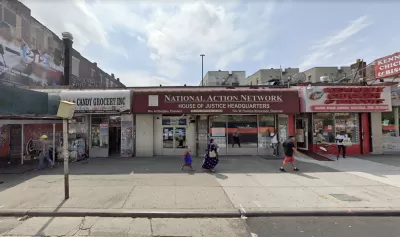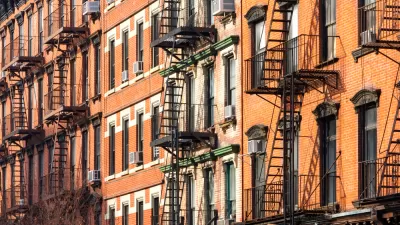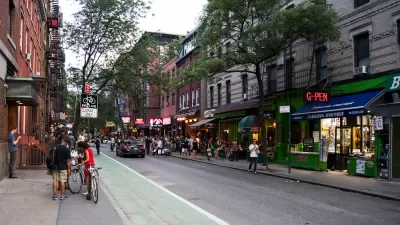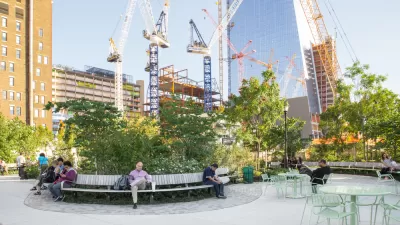After facing community opposition and a call for more deeply affordable housing units, developers withdrew their proposal for Harlem’s One45, prompting questions about the future of the site.

Developers have withdrawn a proposal that would have built two mixed-use towers in Harlem, reports Nick Garber in Patch, in part due to opposition from community members and Harlem Councilmember Kristin Richardson Jordan. The proposal was withdrawn “hours before it was set to be voted on by a City Council committee,” Garber writes. “Besides affordability, opponents also expressed concerns over the buildings' height, and the potential for added traffic and crowding at a nearby subway station.”
While the initial proposal would have contained hundreds of affordable housing units—units that Richardson Jordan said would not be “actually affordable to the community”—, Garber writes that “the block will eventually be transformed regardless — now, likely with a fully market-rate project that will still displace the block's current tenants, including the National Action Network.” According to an article in The Gothamist by Gwynne Hogan, “the developer made several rounds of last-minute concessions,” eventually increasing the subsidized units to 50 percent.
“Having failed to get the zoning changes needed for One45, developers Bruce Teitelbaum and his partners will likely build a combination of market-rate condominiums, a self-storage facility and an unspecified community facility, according to a source familiar with the plans.” The source also noted that the new project would likely be built using non-union labor.
FULL STORY: Harlem's One45 Project Defeated; Storage, Condos Likely Replacement

Study: Maui’s Plan to Convert Vacation Rentals to Long-Term Housing Could Cause Nearly $1 Billion Economic Loss
The plan would reduce visitor accommodation by 25,% resulting in 1,900 jobs lost.

Alabama: Trump Terminates Settlements for Black Communities Harmed By Raw Sewage
Trump deemed the landmark civil rights agreement “illegal DEI and environmental justice policy.”

Why Should We Subsidize Public Transportation?
Many public transit agencies face financial stress due to rising costs, declining fare revenue, and declining subsidies. Transit advocates must provide a strong business case for increasing public transit funding.

Paris Bike Boom Leads to Steep Drop in Air Pollution
The French city’s air quality has improved dramatically in the past 20 years, coinciding with a growth in cycling.

Why Housing Costs More to Build in California Than in Texas
Hard costs like labor and materials combined with ‘soft’ costs such as permitting make building in the San Francisco Bay Area almost three times as costly as in Texas cities.

San Diego County Sees a Rise in Urban Coyotes
San Diego County experiences a rise in urban coyotes, as sightings become prevalent throughout its urban neighbourhoods and surrounding areas.
Urban Design for Planners 1: Software Tools
This six-course series explores essential urban design concepts using open source software and equips planners with the tools they need to participate fully in the urban design process.
Planning for Universal Design
Learn the tools for implementing Universal Design in planning regulations.
Smith Gee Studio
Alamo Area Metropolitan Planning Organization
City of Santa Clarita
Institute for Housing and Urban Development Studies (IHS)
City of Grandview
Harvard GSD Executive Education
Toledo-Lucas County Plan Commissions
Salt Lake City
NYU Wagner Graduate School of Public Service





























